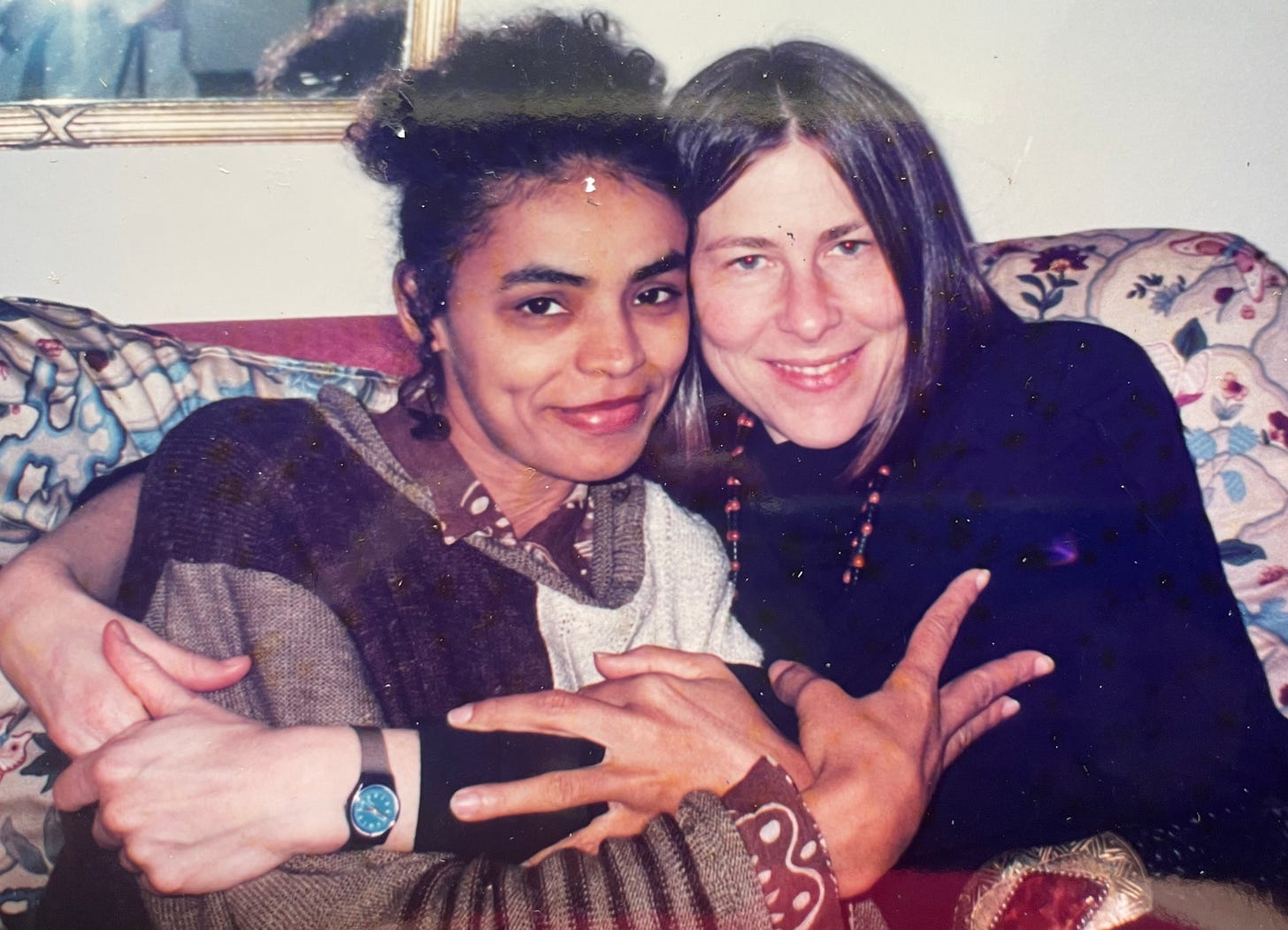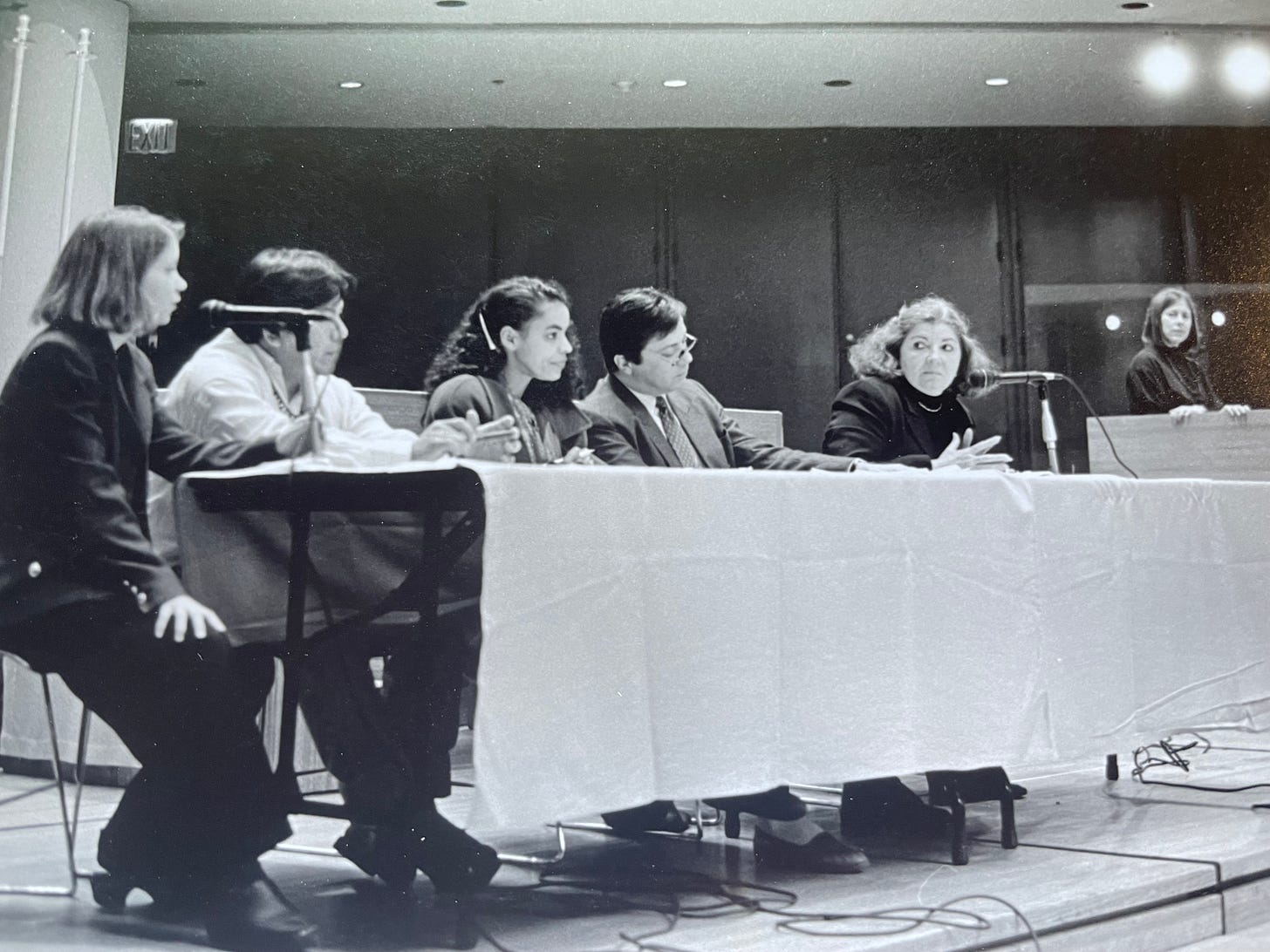This is a standalone memory that gathers its importance from the context of the events and experiences that led up to it. If you have not been reading this memoir from the beginning, feel free to hit this “subscribe” button and you will receive a welcome email listing all the posts in order. In any case, mahalo for reading!
Anyone who is or has had an older sibling can assure you that a mere 20 months of age conveys a lot of authority to wield over other small humans. My favorite Saturday morning cartoon was Mighty Mouse, and I insisted to my younger siblings (and to this day believe I had them convinced) that I kept the tiny superhero in my pocket until it was time for him to fly onto the screen.
I mention this merely to note that at the grand age of four, I understood completely that one did not have to have a commanding stature to have the strength and smarts to overcome much larger adversaries. Donʻt mess with me, was my message. I might call in even tinier but mightier reinforcements. As I reached adulthood I continued to have an affinity for small but mighty allies. Some of them might have actual physical strength, but what I mainly see in the women I recognize as co-conspirators is an inner resolve; the strength of a steel-trap mind combined with an absolute sense of justice and integrity; and most important of all: a warm heart whether towards particular people or for the entire world as a creation with all its diverse, beautiful contributing parts.
Of all the dignitaries attending Amazon Week in New York in 1995, there was one whose impending presence generated a palpable, larger-than-life excitement. Marina Silva had just been elected to the Brazilian Senate, representing her home state of Acre. The Amazon Week organizers wanted to give her a special welcome and asked if in addition to my other duties, I would be her personal VIP host and translator. Once I had heard the outlines of Marinaʻs story, I was eager for the chance to get to know her.
Marina Silva and me at the apartment hotel in New York City during Amazon Week 1995.
The new Senator was two years younger than me, slender, with an enviable mane of jet black hair, her dark eyes glowing with an intelligence that missed nothing and the softness of a tender heart. A kindred soul. The only indication of the physical hardships she had endured were the deep dark circles ringing her eyes. Marina had been born into a family of rubber tappers, working in the forest collecting sap alongside her 10 siblings from a young age. It was a hard life. She suffered from multiple bouts of tropical diseases including malaria, hepatitis, and leishmaniasis. Her mother died when she was a teenager, adding care of her siblings to her burden. By the age of 16 she was so frail she was unable to work in the forest, and her father agreed to her unlikely request to become a nun so she could study.
Marina went to live with relatives in the city of Rio Branco, learning to read and write in a matter of months and graduating from high school four years later. She continued to college, leaving behind her thoughts of becoming a nun, but carrying her spiritual vocation into political and social activism guided by liberation theology. She began organizing the rubber tapper community alongside Chico Mendes, who was later killed by cattle ranchers for leading non-violent resistance to the business interests destroying the rain forest and the way of life of its inhabitants.
Elected to the city council in Rio Branco in 1988, Marina found she was effective in advocating for the rainforest and its people as an elected official. Hence her decision to make what would be a successful run for the federal Senate just six years later. I heard from several other Amanakaʻa delegates that regardless of whether they technically lived in the state of Acre or elsewhere in the Amazon, whether they were indigenous people or rubber tappers, the people of the Amazon considered Senadora Marina Silva “their ambassador in Brasilia.”
Marinaʻs health was still fragile, and upon hearing that she would be traveling to New York, the President of the Senate insisted she see specialists during her visit. She was accompanied by her aide Nilo Diniz, a bright, gentle man who seemed as much a brother to her as a work colleague. The medical attaché at the Brazilian consulate who was setting up the appointments was an older gentleman – which meant neither of them could accompany Marina into the examining room. Now in addition to being Marina’s guide and translator at Amazon Week, I became her companion for a weeklong series of medical appointments. Each day she was poked and prodded and asked the same questions: family history, medical history, current symptoms. By the end of the week when yet another doctor would ask how many children she had or how many cases of hepatitis had she endured, our eyes would meet and I would simply give the answer as she nodded.
Marina in the center of the panel discussion; me standing at the podium at far right.
Amanakaʻa had rented an apartment hotel for her visit, so Marina and Nilo and I would pick up groceries and cook dinner together, sometimes joined by other delegates from the conference. “Chicken” and “rice” were two of the first words words in her English vocabulary. Given that I was now privy to details of Marinaʻs personal history during the day, it was only natural that I reciprocate with my story in the evenings. Our conversations were personal and philosophical; filled with lighthearted humor and deep explorations. Discussions started at the Amazon Week panels on topics like the search for sustainable economic alternatives, eco-tourism, and land rights, continued into the evening back at the hotel.
By the time the week ended, we parted as sisters. I saw Marina again in New York the following year when she came to the U.S. as a recipient of the Goldman Environmental Prize in honor of her work in creating a 2 million hectare (5 million acre) reserve managed by traditional Rainforest communities. I have cheered from afar as she became Minister of the Environment under Lula in both his stints as President of Brazil, and made an unexpected runoff in presidential elections herself.
I also learned later from one of her children that while Marina had no photos of them in her office at the Senate, she did have the stuffed raccoon I gave her and a framed photo of the two of us. I donʻt know why. I donʻt know what Marina Silva would say if asked what our connection meant to her, then or now. My touchstone - how I hear Marinaʻs voice in my head today - would be the Luciano de Crescenzo saying she quoted in her first address to the Brazilian senate: “We are each of us angels with only one wing, and we can only fly by embracing one another.” When I find myself in a difficult conversation with someone in my community and ask myself how to create an ally rather than an adversary, I try to imagine us as angels with only one wing who together might have the capacity to soar.
My Hawaiian friends say “Donʻt mistake our aloha for weakness.” Of Marina Silva I would also say that neither her tender heart nor her fragile body are any indication of the strength of her capacity and commitment. She is one of my tiny superheroes.






This was one of your best essays so far, inmo. Hana hou!